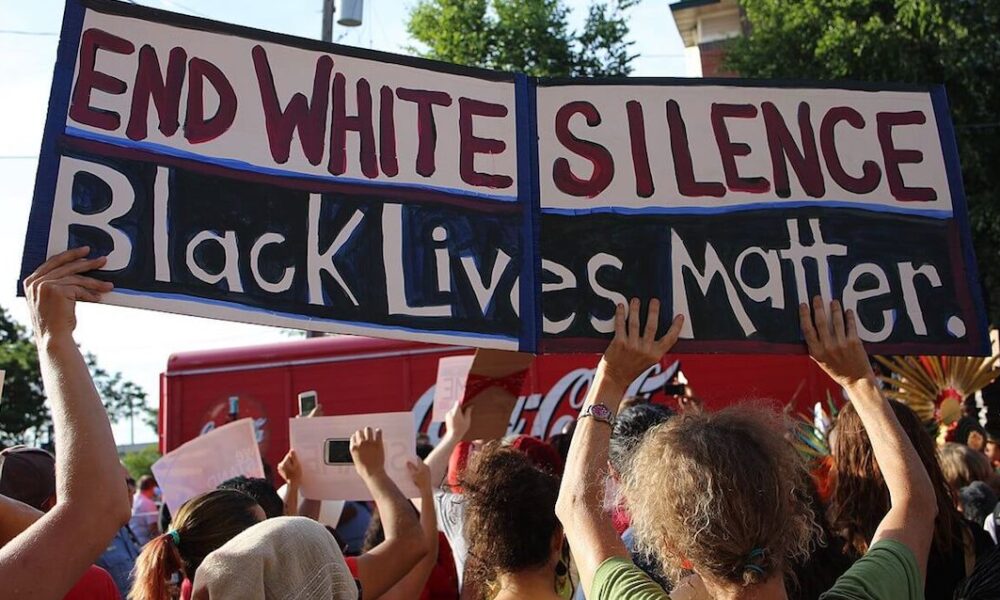A question that continues to trouble Black Lives Matter activists and organizers almost two years after the largest uprisings in recent history is how to disseminate powerful, transformative messages to those uninvolved, unaware, or uninterested in racial justice. To answer this question, critics pen a deluge of columns: Defund the police does not help real people, in-your-face activism hurts trans people, performative Instagram posts embolden “soft moralizers.” The list goes on and. In short, progress remains far from reach as radical, divisive action keeps us behind. But, in dealing with these plentiful critiques, those interested in the pursuit of liberation should be cautious about the underlying messages these counter-intuitive lines of argument send: To tailor interactions, demands, and movements to people’s comfort levels instead diminishes their credibility.
Beyond my own involvement in activist groups, in countless of my interpersonal encounters with white people, I notice a glaze when I speak about race. Perhaps I am doing something wrong––it is too early, too late, too political, too ‘heavy’ to discuss this topic. It is my fault for assuming they do not know, the person probably has good intentions, they disavow yet accept their “white guilt,”—perhaps I should be lucky that they’re listening. I know I am not alone in facing these thoughts that plague me; I am surely one of many Black individuals, among other people of colour, who feel this emotional, yet often essential, toll to educate. Carefully scripting my experience and my knowledge into palatable pieces for my interlocutor’s digestion exhausts my energy; I wonder what I will receive in return.
Without denying the shift in attitudes during racial discourse, there must be a turn toward embracing discomfort in conversation. In popular culture, activism, and in the workplace, ideas of civility, respectability, and safe spaces need to be enhanced to account for their limiting potential for engagement. Civility and respectability politics uplift the already uplifted, placing socially constructed restrictions on what one can and cannot say above the justified emotions of racialized people. It may seem rude to make another person uncomfortable, but confronting these uncomfortable realities is a risk necessary to mobilizing for justice. Articulating one’s experiences with white supremacy is something that transcends dialogue. Put simply, when the fleeting conversation ends, we go back into––if we ever left––the real, unequal world, we re-enter unjust systems and institutions where we are unsafe. When I prioritize someone’s comfort over my experience, for instance to avoid triggering oppressive white tears, it is disrespectful to the both of us. This misrepresentation misses the mark, the discussion achieves nothing, and our chances for coming to mutual respect becomes merely a guise.
This formulation of discomfort is years in the making. In 1981, Black feminist Bernice Johnson Reagon argued that discomfort is a foundational aspect of coalition-building and solidarity. Importantly, this applies across causes; as people begin to conceive of themselves as allies to different marginalized groups, Reagon suggests that allyship hinges on a profound sense of discomfort at our world. It, in fact, would be the only logical response to recognizing and combating how structural injustice and oppression affect people’s lives not only in Canada, but around the globe. Likewise, political philosopher Iris Marion Young viewed communication across difference as a gift-giving process, and some trans activists of colour, like actress Alexandra Billings, urge cisgender people to listen silently as if underground, as a reflection of historically suppressed trans resistance. To learn later that Canada enslaved Black and Indigenous people, that Canada’s normalized anti-Asian racism goes back centuries, that Canada continues to commit cultural and colonial genocide of Indigenous peoples, is the gift of privilege. Rather than shy away, our discomfort should compel us to act not against the subject of these histories, but the system that perpetuates and erases these histories.
Though discourse alone will not save us, it is a valiant first step in intersectional fights for justice in Canada and around the world. By accepting discomfort as an integral component in conversation and activism, we take the risk of sharing our truest selves, transforming contrived comfort into communal courage to move to liberation for all.









